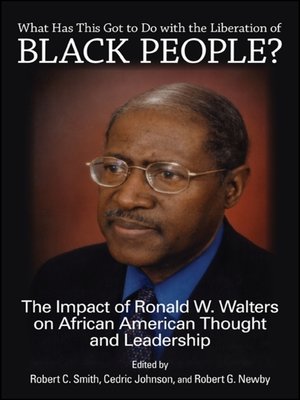What Has This Got to Do with the Liberation of Black People?
ebook ∣ The Impact of Ronald W. Walters on African American Thought and Leadership · SUNY series in African American Studies
By Robert C. Smith

Sign up to save your library
With an OverDrive account, you can save your favorite libraries for at-a-glance information about availability. Find out more about OverDrive accounts.
Find this title in Libby, the library reading app by OverDrive.



Search for a digital library with this title
Title found at these libraries:
| Library Name | Distance |
|---|---|
| Loading... |
A compelling intellectual and political study of a leading post–civil rights era African American political theorist and strategist.
It is rare that a major leader of a protest movement also becomes an accomplished scholar who provides valuable insight into the movement in which he participated. Yet this was precisely what Ronald W. Walters (1938–2010) did. Born in Wichita, Kansas, the young Walters led the first modern sit-in protest during the summer of 1958, nearly two years before the more famous Greensboro sit-in of 1960. After receiving a doctorate from American University, Walters embarked on an extraordinary career of scholarship and activism. Shaped by the civil rights and black power movements and the African and Caribbean liberation struggles, Walters was a pioneer in the development of black studies and "black science" in political science. A public intellectual, as well as advisor and strategist to African American leaders, Walters founded numerous organizations that shaped the post–civil rights era. A must read for scholars, students, pundits, political leaders, and activists, What Has This Got to Do with the Liberation of Black People? is a major contribution to the historiography of the civil rights and black power movements, African American intellectual history, political science, and black studies.







